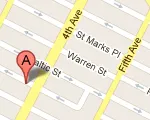DENTAL EXAM
A comprehensive dental exam will be performed by your dentist at your initial dental visit. At regular check-up exams, your dentist and hygienist will include the following:
- Examination of diagnostic x-rays (radiographs): Essential for detection of decay, tumors, cysts, and bone loss. X-rays also help determine tooth and root positions
- Gum disease evaluation: Check the gums and bone around the teeth for any signs of periodontal disease
- Examination of tooth decay: All tooth surfaces will be checked for decay with special dental instruments
- Examination of existing restorations: Check current fillings, crowns, etc
PROFESSIONAL DENTAL CLEANING
- Removal of calculus (tartar): Calculus is hardened plaque that has been left on the tooth for some time and is now firmly attached to the tooth surface. Calculus forms above and below the gum line and can only be removed with special dental instruments
- Removal of plaque: Plaque is a sticky, almost invisible film that forms on the teeth. It is a growing colony of living bacteria, food debris, and saliva. The bacteria produce toxins (poisons) that inflame the gums. This inflammation is the start of periodontal disease!
- Teeth polishing: Remove stain and plaque that is not otherwise removed during tooth brushing and scaling
HOW DO SEALANTS PROTECT CHILDREN’S TEETH?
In general, dental sealants are used to protect molars from oral bacteria and harmful oral acids. These larger, flatter teeth reside toward the back of the mouth and can be difficult to clean. Molars mark the site of four out of five instances of tooth decay. Decay-causing bacteria often inhabit the nooks and crannies (pits and fissures) found on the chewing surfaces of the molars. These areas are extremely difficult to access with a regular toothbrush.
If the pediatric dentist evaluates a child to be at high risk for tooth decay, he or she may choose to coat additional teeth (for example, bicuspid teeth). The sealant acts as a barrier, ensuring that food particles and oral bacteria cannot access vulnerable tooth enamel.
Dental sealants do not enhance the health of the teeth directly. In general however, sealants are less costly, less uncomfortable, and more aesthetically pleasing than dental fillings. It should be noted that the “sealing” procedure is easily completed in one office visit, and is entirely painless. Normally the pediatric dentists recommend that permanent molars be sealed as soon as they emerge. The health of the sealant must be monitored at biannual appointments. If the seal begins to lift off, food particles may become trapped against the tooth enamel, actually causing tooth decay.
COMPOSITES FILLINGS
A composite (tooth colored) filling is used to repair a tooth that is affected by decay, cracks, fractures, etc. The decayed or affected portion of the tooth will be removed and then filled with a composite filling.
There are many types of filling materials available, each with their own advantages and disadvantages. You and your dentist can discuss the best options for restoring your teeth. Composite fillings, along with silver amalgam fillings, are the most widely used today. Because composite fillings are tooth colored, they can be closely matched to the color of existing teeth, and are more aesthetically suited for use in front teeth or the more visible areas of the teeth.
As with most dental restorations, composite fillings are not permanent and may someday have to be replaced. They are very durable, and will last a few years, giving you a long lasting, beautiful smile.
REASONS FOR COMPOSITE FILLINGS:
- Chipped teeth
- Closing space between two teeth
- Cracked or broken teeth
- Decayed teeth
- Worn teeth
AMALGAM FILLINGS
A silver amalgam filling is used to repair a tooth that is affected by decay, cracks, fractures, etc. The decayed or affected portion of the tooth will be removed and then filled with a silver filling.
There are many types of filling materials available, each with their own advantages and disadvantages. You and your dentist can discuss the best options for restoring your teeth. Amalgam fillings, along with composite (tooth colored) fillings, are the most widely used today. An amalgam filling is more commonly used in the back teeth since the color is not as aesthetic as a composite filling.
As with most dental restorations, amalgam fillings are not permanent and may someday need replacement. They are very durable, and will last many years, giving you a long lasting smile.
REASONS FOR AMALGAM FILLINGS:
- Cracked or broken teeth
- Decayed teeth
- Worn teeth
CROWNS (CAPS)
A crown (or cap) is a covering that encases the entire tooth surface restoring it to its original shape and size. A crown protects and strengthens tooth structure that cannot be restored with fillings or other types of restorations.
Although there are several types of crowns, porcelain (tooth colored crown) are the most popular. They are highly durable and will last many years, but like most dental restorations, they may eventually need to be replaced. Porcelain crowns are made to match the shape, size, and color or your teeth giving you a natural, long-lasting beautiful smile.
REASONS FOR CROWNS:
- Broken or fractured teeth
- Cosmetic enhancement
- Decayed teeth
- Fractured fillings
- Large fillings
- Tooth has a root canal
PULP THERAPY
The “pulp” of a tooth cannot be seen with the naked eye. Pulp is found at the center of each tooth, and is comprised of nerves, tissue, and many blood vessels, which work to channel vital nutrients and oxygen. There are several ways in which pulp can be damaged. Most commonly in children, tooth decay or traumatic injury lead to painful pulp exposure and inflammation.
Pediatric pulp therapy is known by several other names, including: root canal, pulpotomy, pulpectomy, and nerve treatment. The primary goal of pulp therapy is to treat, restore, and save the affected tooth.
Pediatric dentists perform pulp therapy on both primary (baby) teeth and permanent teeth. Though primary teeth are eventually shed, they are needed for speech production, proper chewing, and to guide the proper alignment and spacing of permanent teeth.
Here are some of the other signs to look for:
- Constant unexplained pain
- Nighttime pain
- Sensitivity to warm and cool food temperatures
- Swelling or redness around the affected tooth
- Unexpected looseness or mobility of the affected tooth
Every situation is unique. The pediatric dentist assesses the age of the child, the positioning of the tooth, and the general health of the child before making a recommendation to extract the tooth or to save it via pulp therapy. Some of the undesirable consequences of prematurely extracted/missing teeth are listed below:
- Arch length may shorten.
- In the case of primary tooth loss, permanent teeth may lack sufficient space to emerge
- Opposing teeth may grow in a protruding or undesirable way
- Premolars may become painfully impacted
- Remaining teeth may “move” to fill the gap
- The tongue may posture abnormally
The goal is to always try to save the tooth.



